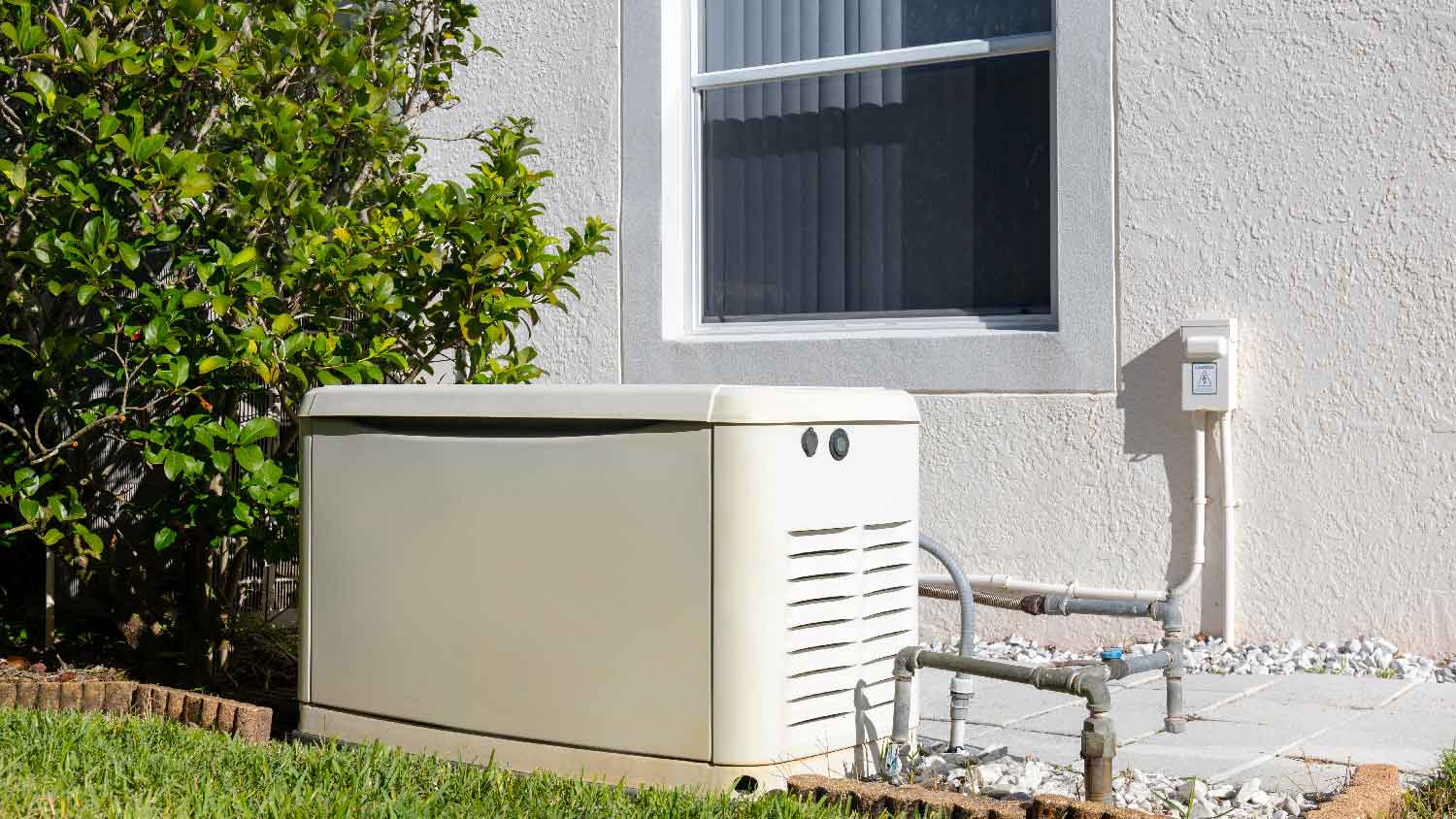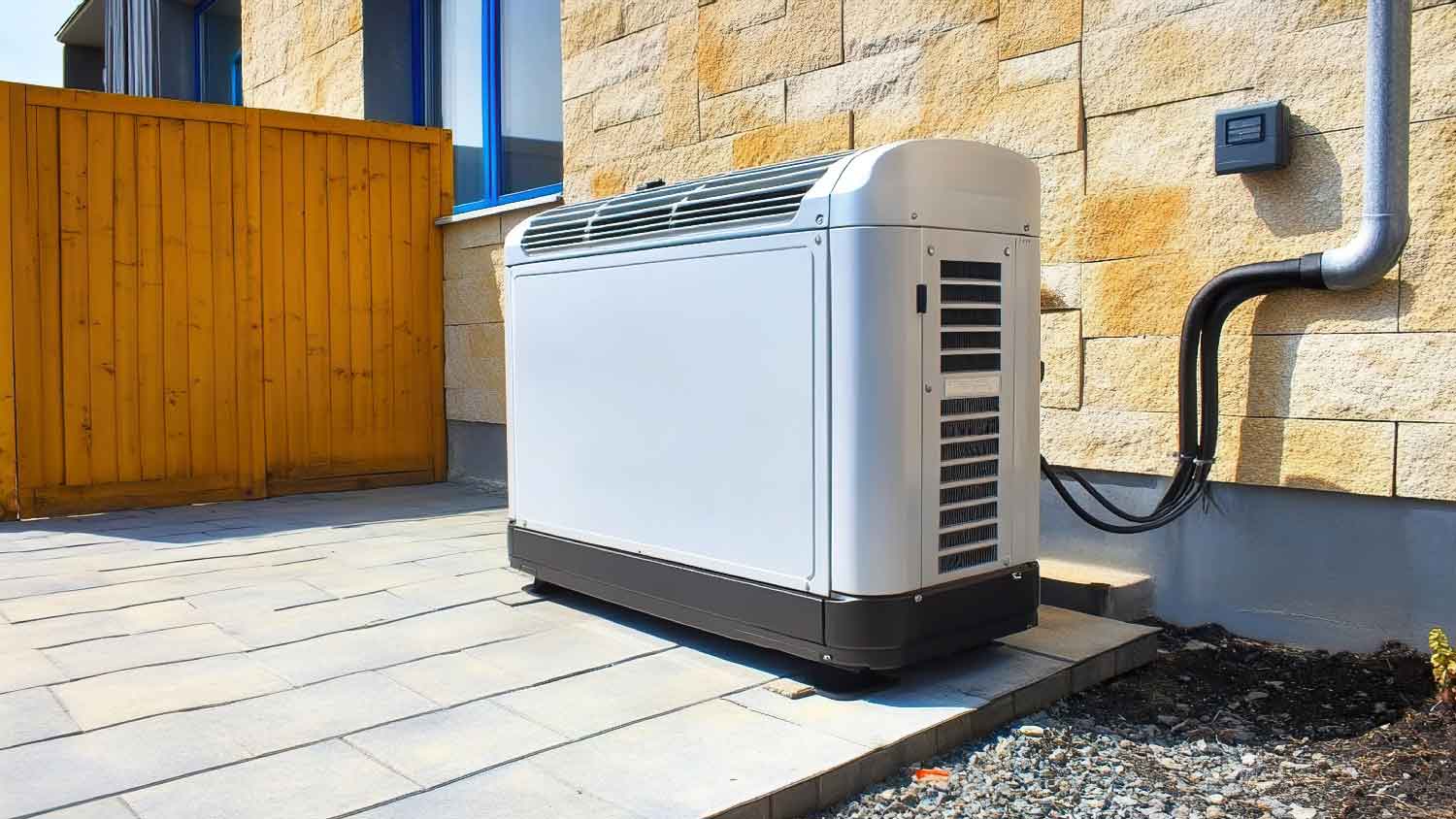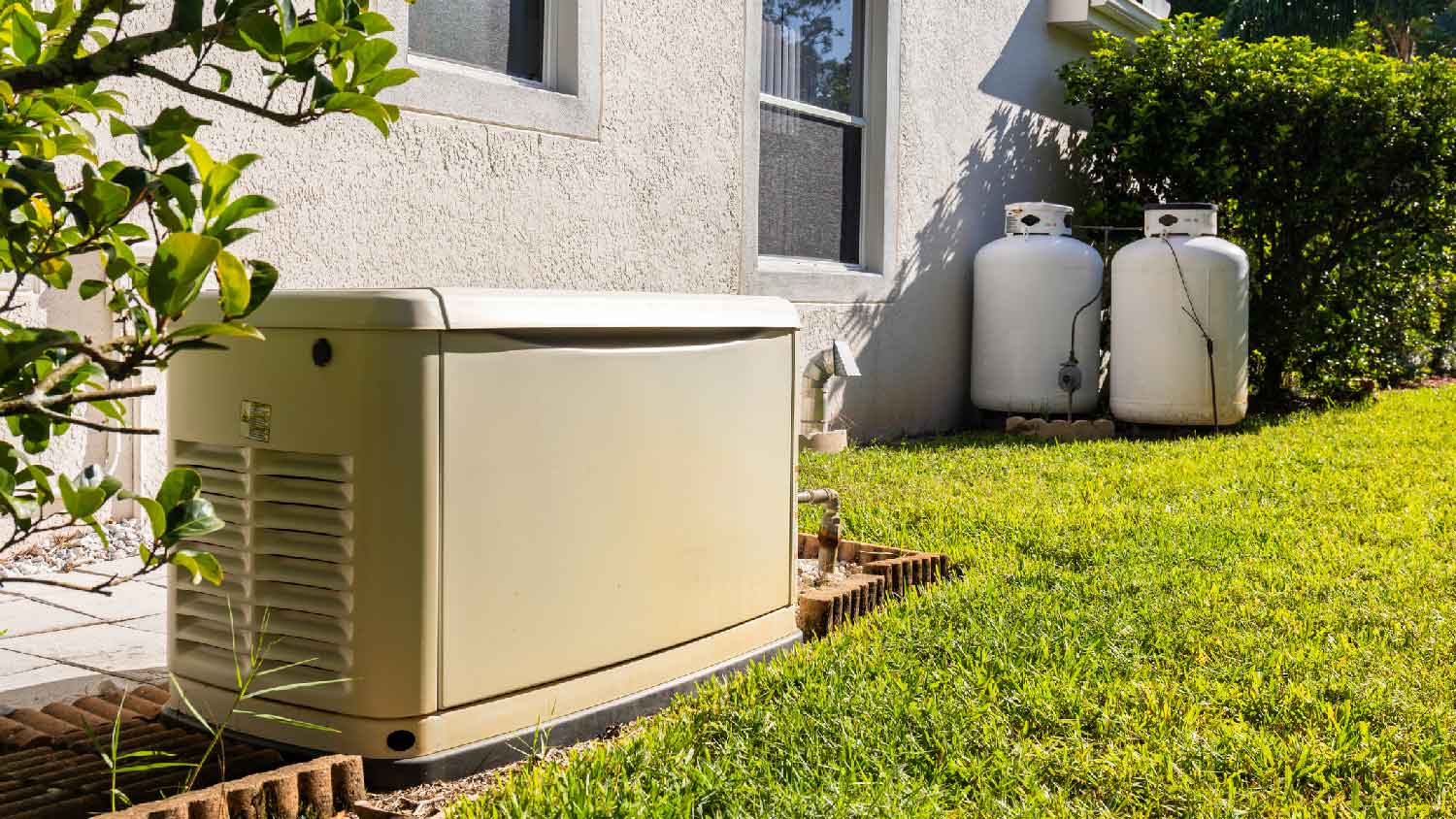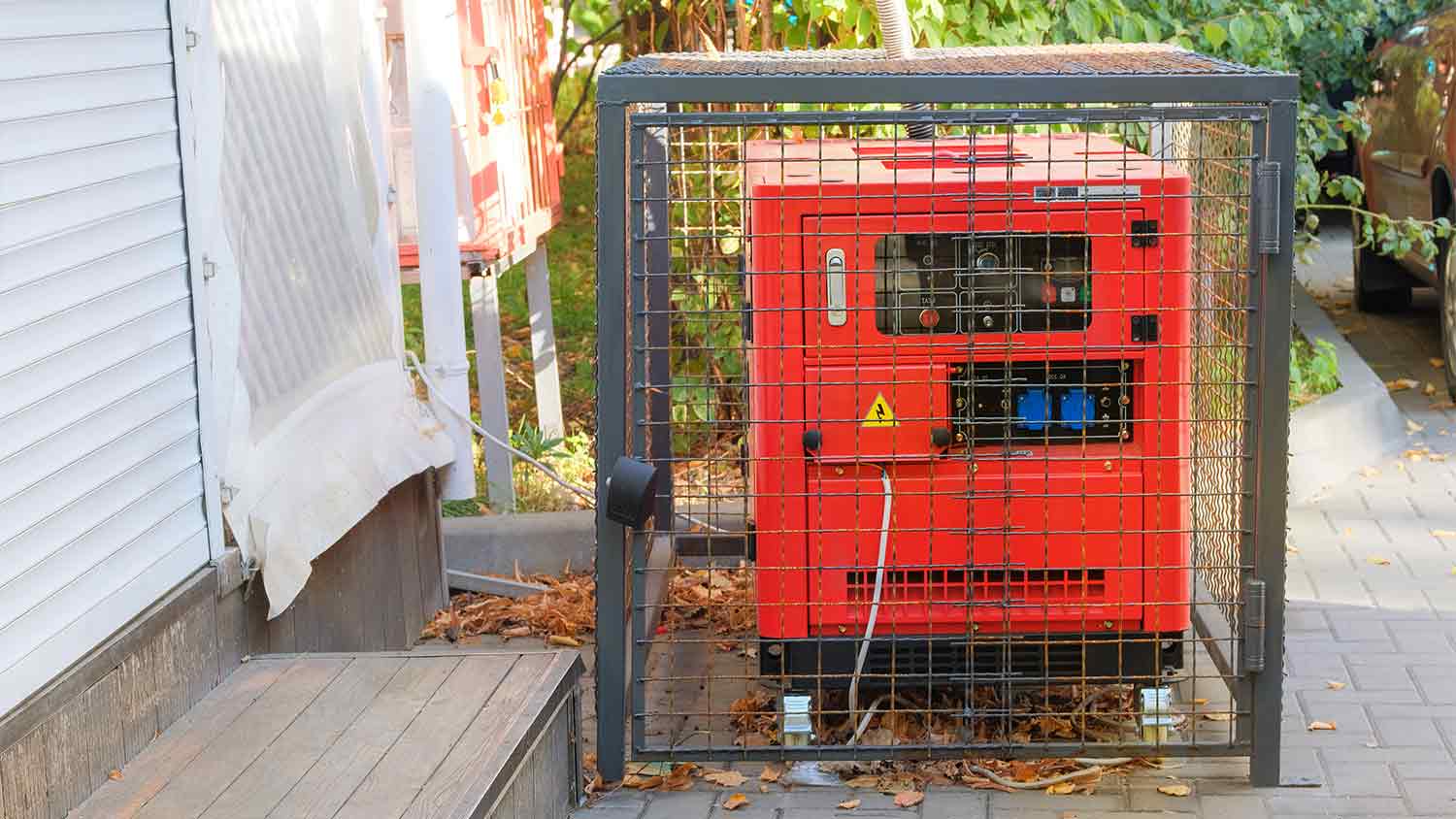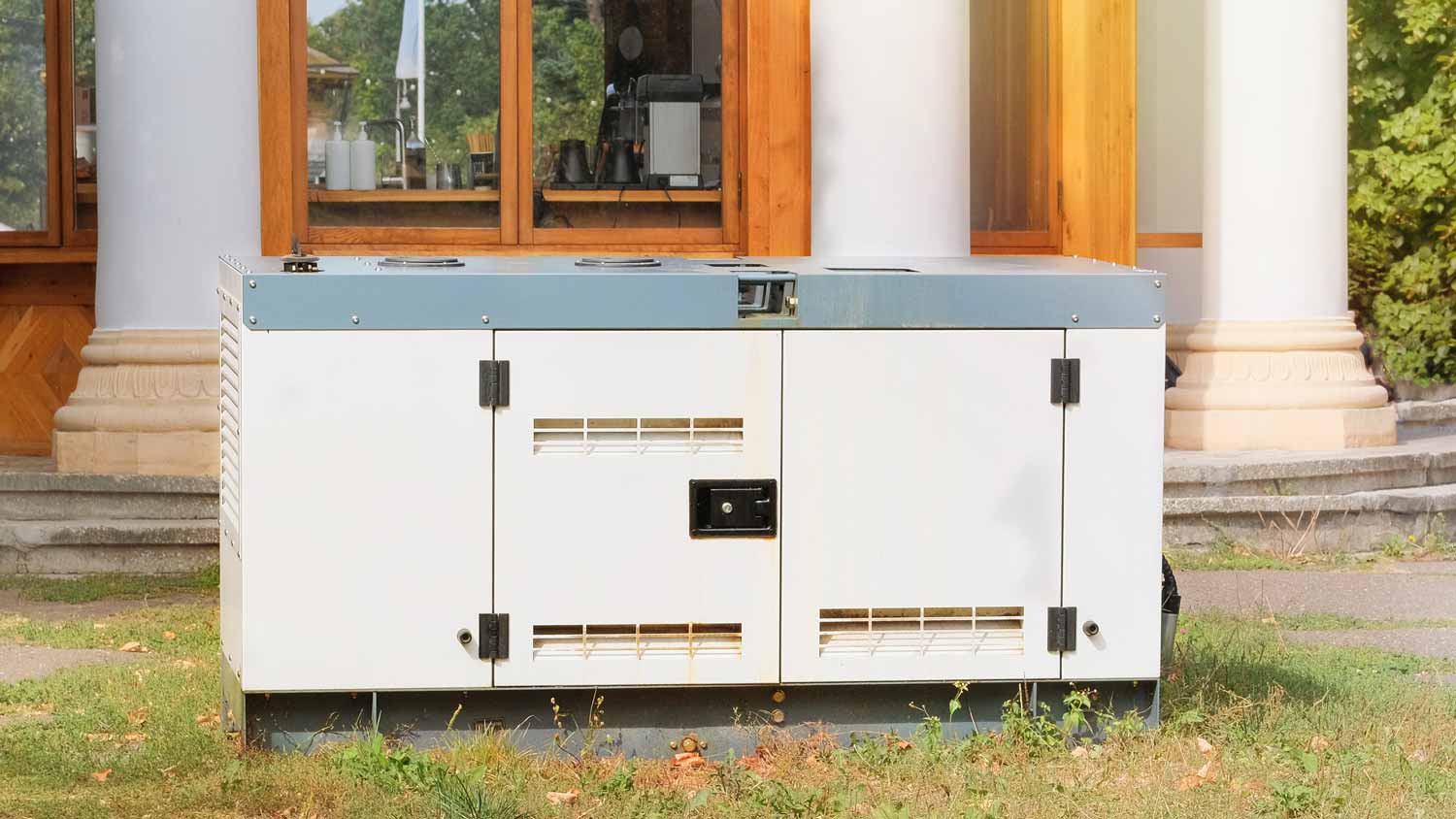Can a Whole-House Generator Run an Air Conditioner?
Find the right generator to keep your A/C running smoothly
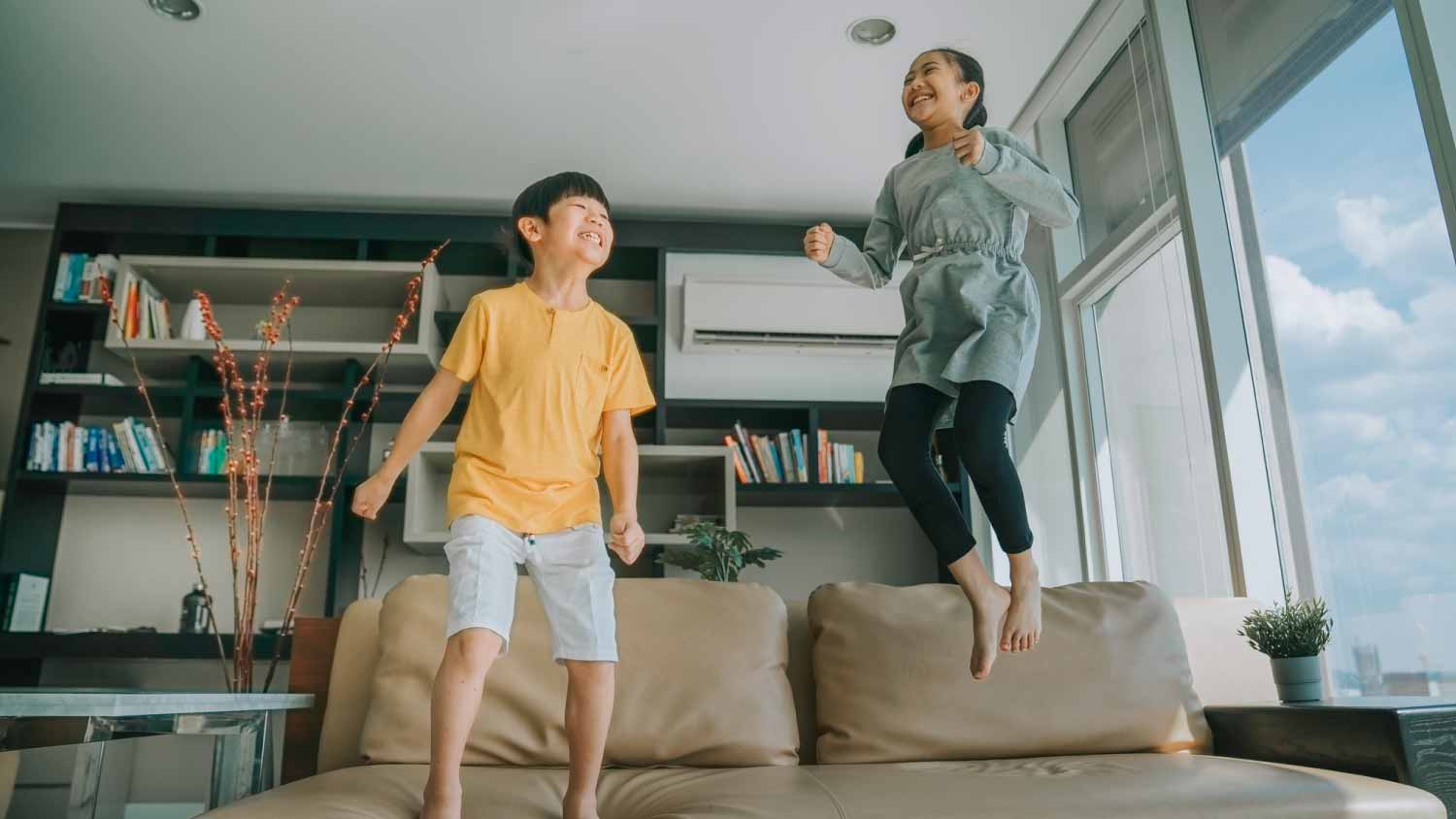

A whole-house generator can maintain a home's air conditioning system during power outages, depending on its capacity.
Additional appliances may reduce available power for a central air system.
Startup surge power is required to power air-conditioning without overloading the generator system.
Hire a generator installer to place a properly installed and sized generator that is safe for home use.
A power outage can be more than an annoyance—it can leave you without essential systems, including air conditioning. If you rely on a whole-house generator, you might wonder whether it has enough power to keep your AC running.
The answer depends on several factors, including the generator's wattage, the type and size of the air conditioning system, and the overall energy demand in your home. Here’s what you need to know to ensure your whole-house generator can safely support your home’s cooling needs.
Can a Whole House Generator Support Central AC?
A whole-house generator can maintain a home's air conditioning system during power outages, but there are a few factors to consider. A whole house generator's ability to power an AC system depends on its capacity or wattage output, the type and size of the air conditioner (i.e., central AC or window unit), and whether other home appliances are running simultaneously.
Whole-house generators are designed to handle multiple appliances at once. However, air conditioners require a high starting wattage, which can strain a generator if it isn't properly sized. Startup surge power, or locked rotor amps (LRA), is a short burst of high wattage needed to turn on a whole house generator's compressor. Generators must accommodate this surge to avoid overloading.
What Should I Consider When Purchasing a Whole House Generator?
To determine if your generator can handle powering an air conditioner during an electrical emergency, consider whether you actually need one. If you live in a smaller space or do not need to power your entire house, you may want to consider a portable generator. However, portable generators cannot power your entire AC system during an outage.
If you need a whole house-generator, determine its wattage you’ll need by adding the wattage of the appliances you’ll want powered during the outage. A generator installer or contractor near you can also help you determine the size you’ll need.
You should consider the type of fuel you’ll need (diesel, propane, or natural gas) and its accessibility. Finally, keep your budget in mind, as whole-house generators can cost from $5,000 to $25,000, not including fuel or maintenance.
What Are Some Factors That Impact Whole-House Generator Performance?
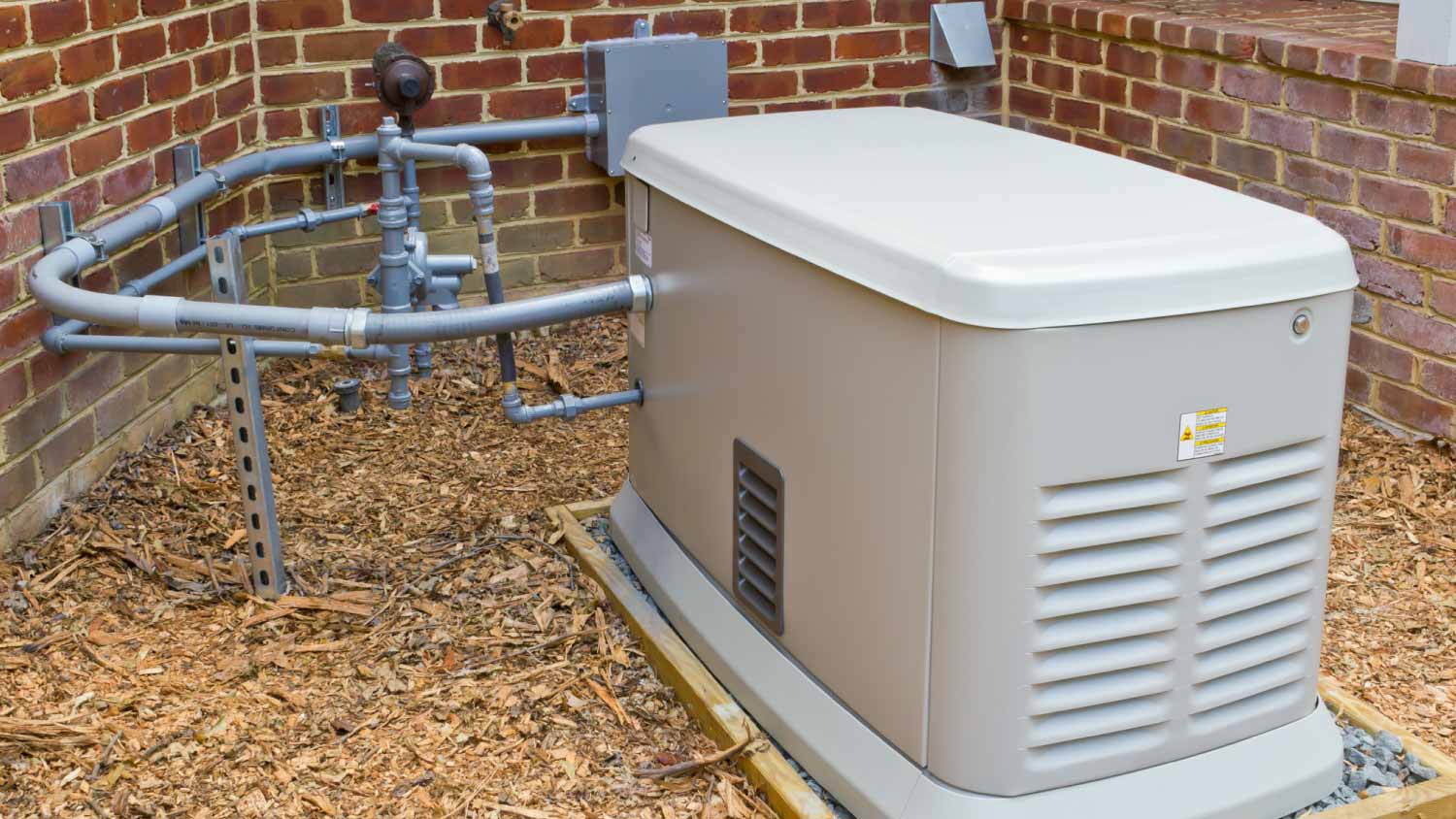
Keep these factors in mind when using your whole-house generator to ensure peak performance.
Several factors influence whether your generator can efficiently run an air conditioning system, including.
Environmental factors: Factors like temperature, humidity, and altitude can impact your generator’s ability to run smoothly.
Fuel type: Propane and diesel offer great fuel efficiency, but require frequent refills. Natural gas generators can run longer thanks to its permanent fuel source.
Load management: Load management affects generators, as running too many appliances at once can strain them.
Age: The age and efficiency of AC units also impacts generator efficiency—older systems may draw more power.
Frequently Asked Questions
To power a central air system during a power outage, the whole-house generator will need to be at least 5,000 watts, and this number will significantly increase for larger units. Check the specific wattage requirements of your AC unit to choose the right generator size. Consider consulting a generator installer to ensure your whole-house generator meets your electrical load needs.
A 10,000-watt generator can run a small to mid-sized central AC unit (typically up to 3 tons or 36,000 BTU) along with a few other appliances. However, larger AC units or additional loads will require a bigger generator. Consult a local generator installer to ensure you add the correct size generator to your home.
To reduce AC startup power for a whole-house generator, install a soft start kit or hard start capacitor, which lowers the initial surge by gradually ramping up the compressor. Using a smart load manager can also help by staggering startup loads, preventing a system overload and future costly repairs.
An undersized whole-house generator has the potential to overheat and shut down when you try to run a central AC system. This scenario can not only damage the whole-house generator, but can also trip your home’s breakers or cause electrical damage. To avoid this situation, hire a local generator installer to correctly size your whole-house generator.

